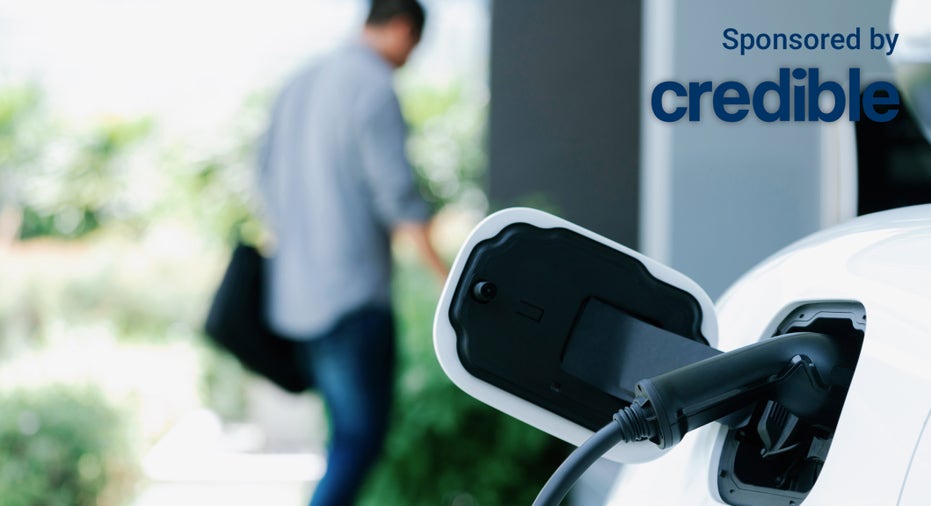Number of electric vehicles that qualify for new electric vehicle tax credit drops to 13
Find out if your new vehicle qualifies for the $7,500 credit

Many vehicles won't qualify this year, or will qualify for just a partial credit. (iStock)
The IRS recently announced updates to its $7,500 tax credit for electric vehicle owners. The changes reduce the number of electric and hybrid vehicles that qualify for the tax credit to 13, which is down from about two dozen in previous years.
Certain electric vehicles purchased new qualify for the $7,500 credit, while used electric vehicles purchased before, in 2023 or after are eligible for up to $4,000. Additionally, the purchaser must use the vehicle personally and their income can’t exceed certain limits, based on their tax filing status.
The main reason for the reduction in vehicles that qualify for the tax credit is based on where the batteries and other components in the vehicles are made. Going forward, vehicles with car parts made by Chinese manufacturers won’t qualify for the credit.
"Automakers are adjusting their supply chains to ensure buyers continue to be eligible for the new clean vehicle credit, partnering with allies and bringing jobs and investment back to the United States," Ashley Schapitl, Treasury Department spokeswoman, said in an interview.
Some of the vehicles that still qualify for the credit include the Model Y Tesla, Rivian Automotive’s R1T truck, NV’s Jeep Wrangler 4xe and the Ford F-150 Lightning truck.
One way to keep your car-related costs down is to make sure you’re getting the lowest auto insurance rate possible. Comparing multiple insurance quotes can potentially save you hundreds of dollars per year. And it’s so easy to get a free quote in minutes through Credible’s partners here.
AUTO LOAN DEBT SURGING AND SO ARE MISSED PAYMENTS
Tesla and GM owners will be most affected
The vehicle brands getting hit the hardest by the new tax credit rules are vehicles that get their parts from Chinese manufacturers. These include popular brands like Tesla and GM, according to Sam Abuelsamid, an analyst with Guidehouse Insights, in an interview with The Hill.
The Tesla Model 3 is set to have its credit slashed to $3,750 because it uses a Chinese-made battery. Certain GM models also source their materials from Chinese companies, meaning they will also be ineligible for the credit.
The Mustang Mach-E will become ineligible for the $3,750 credit it was eligible for in previous years.
Although you may not be eligible for a tax credit, electric vehicle owners may qualify for a discount on their auto insurance rate. Compare your auto insurance rate options with multiple lenders with the help of Credible’s easy-to-use comparison tool.
HOMEOWNERS INSURANCE RATES ON THE RISE, MAINLY DUE TO INCREASE IN NATURAL DISASTERS
Redeeming electric vehicle credit has gotten easier
While the electric vehicle tax credit is more difficult to qualify for, redeeming it has gotten easier for those who do qualify. Rather than claiming the credit on one's taxes the year after they buy their car, the tax credit is now redeemable at the point-of sale.
"The effect of that [claiming the deduction the following year] was you didn’t get any deduction on your monthly payment," Abuelsamid said. "People were paying more up front [and] you’d get some money back later… That means that you have a lower monthly payment, EVs are going to be more affordable to more people, and the dealers get the credit back from the IRS after the sale is made."
This may be an incentive for average consumers to consider going electric, particularly if their new vehicle qualifies for the full tax credit.
Another way to lower your electric vehicle costs is to have the right insurance, at the right cost. Don't overpay for car insurance. Compare car insurance rates though Credible with the click of a button.
MORE CONSUMERS SHOPPING FOR NEW AUTO INSURANCE TO SAVE MONEY: J.D. POWER REPORT
Insurance rates are often higher for electric vehicles
While a $4,000 to $7,500 tax credit is a hefty reward for simply owning an electric vehicle, there are insurance implications.
Electric vehicles are costlier cars, both in terms of initial purchase price and insurance rates. Repairs for electric vehicles are costly because parts are more difficult to find, often leading to higher premiums, according to Kelley Blue Book.
Repairs are all around difficult when it comes to electric vehicles. Certain safety precautions must be taken if the batteries are damaged, raising the repair bill. The more insurance companies must pay out for repairs, the higher a driver's potential rate.
There are a few ways you can lower your monthly car payment. Shopping around for rates regularly ensures you’re getting the best rate. Credible can help you shop rates in a matter of minutes, all in one place.
Have a finance-related question, but don't know who to ask? Email The Credible Money Expert at moneyexpert@credible.com and your question might be answered by Credible in our Money Expert column.




















